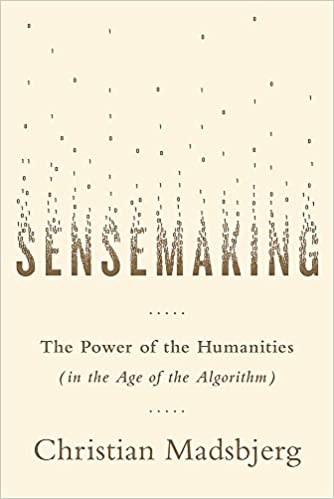Christian Madsbjerg is one of those precious polymaths that can definitely give you novel perspectives even on subjects you believe you can master inside-out. Schooled in Humanities, as a founder and leader of ReD Associates, he has been consulting lots of major corporations on their business challenges, developing quite a radical approach to their ultimate meaning and success.
What makes his “Sensemaking” (Hachette Books, 2017) a seminal book for our work is its capacity to shed new light on the ways we should look at the world when doing business. Business world is still anchored to the safe harbour of linear logic and deductive/inductive thinking – a cognitive delusion rooted in the positivist misreading of the scientific method – i.e. the belief that a sophisticated analytical algorithm can, starting from quantitative facts and data, compute/predict everything.
Unfortunately, markets are made by humans and business is about people creating value for other people: this means it belongs in the realm of complexity (where the cause-effect relationships get blurred and system behaviours are unpredictable).
This is how businesses so often fail – making decisions about human behaviours assuming humans are isolated, out-of-context units to “interview”: corporate executives often don’t realize (and even deny) they need a new kind of knowledge, built around “the experiences of actual people and their worlds”. This type of knowledge counts on interpretive skills we can develop only by looking at people in their specific contexts, using our intuition, rather than rationality, to understand the meaning that connects them to different worlds.
This kind of “shared” knowledge is “situational” and never “universal”, and allows us to “capture the way we all feel together”. We can pursue it by watching and listening to “stories” around worlds and the way people build and relate to them.
The book is a perfect introduction to the fundamental principle of sensemaking – a method of practical wisdom grounded on Humanities – an “understanding of worlds” – a call to action for leaders and strategy-makers to be “anthropologists” to understand the world through observation of behaviours and cultures, to achieve long-lasting, sustainable success.
Madsbjerg’s writing is naturally erudite but always plain and simple, rich in examples and stories from his consultancy practice, clear, fluent and highly readable – simply unmissable.

